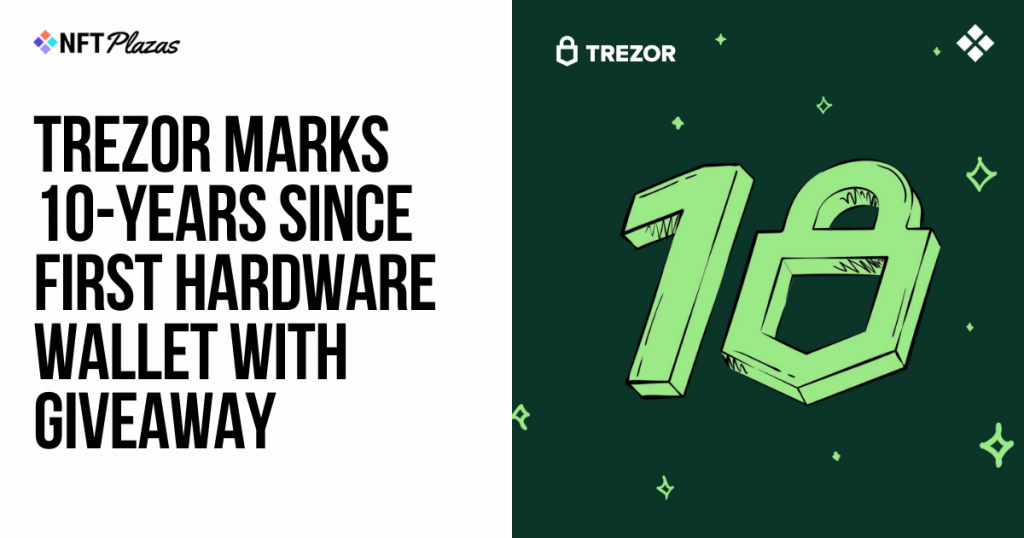Trezor Marks 10-Years Since First Hardware Wallet with Giveaway

Trezor, known for its hardware cryptocurrency wallets, is celebrating the 10th anniversary of its first product, the Trezor Model One.
To mark this occasion, Trezor is holding a giveaway offering three limited edition metallic Trezor Model One devices. To participate, individuals must simply follow Trezor on X, retweet the anniversary post, and tag two friends.
As of posting, the winners have been selected and were contacted directly by Trezor.
 Source: Trezor
Source: TrezorHistory of Trezor
Trezor was founded by Marek “Slush” Palatinus and Pavol “Stick” Rusnák. The concept for the hardware wallet emerged after Palatinus suffered a significant Bitcoin ($BTC) loss in 2011 due to an online attack. This incident spurred the creation of the Trezor Model One, which was officially launched on July 29, 2014. It was the first hardware wallet designed to provide secure storage for cryptocurrency.
“We wanted to make a couple of hardware wallets for our friends. But soon we realized that we had found a big market gap. Now we are one of the most trusted wallets in the world,” said Marek “Slush” Palatinus, Co-Founder of Trezor.
Initial prototypes of the Trezor Model One were built using Raspberry Pi, featuring a display, two buttons, and a USB port. Despite uncertainties about market demand, the Trezor Model One quickly sold out, demonstrating a significant need for secure storage solutions within the cryptocurrency community.
The initial pre-order campaign for 1,000 devices rapidly expanded to 30,000 units due to high demand, allowing Trezor to maintain its independence without venture capital funding.
Looking Ahead
Trezor plans to continue focusing on security and innovation within the cryptocurrency industry.
“No matter what the future brings, we will continue doing what we are best at—securing and innovating the whole crypto industry while being open about everything we do,” said Pavol “Stick” Rusnák, Co-Founder of Trezor.
The company’s independent and open-source approach has been crucial in maintaining high security standards and transparency.












